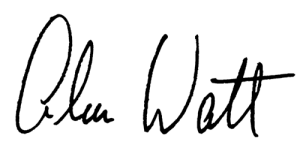One True Moment
“Where did that come from?” I believe there is something we writers are collectively seeking. We are all attempting to convey an […]
Stay Curious
“The curious are always in some danger. If you are curious, you might never come home.” – Jeanette Winterson When my son […]
What Do I Write Next?
Writers frequently come to me and say: “I have three ideas. Which one should I write next?”In the 90-day workshops, one of […]
Story is an Argument
(Image from “Big” 1988) Story is an argument. The theme (or dramatic question) is the thesis statement, and the story is the […]
What is My Screenplay About?
When we think of our favorite movies, there is invariably an element that is so novel, so surprising, that it ignites our […]
First-Time Novelists: Dealing with Fear
Many authors share a similar fear: “What will people think?” It looks slightly different for each writer. What will my parents think when […]
Hold the Story Loosely
Our idea of the story is never the whole story. The act of writing a novel, memoir, or screenplay is a way […]
What Does it Mean?
Everyone has a story. It takes courage to tell it, be it memoir or fiction, because there comes a point where we […]
Choose Love
In every story, love is the mystery that is always on the table. In the beginning of your story, the question may […]
Passion
“I have no special talents. I am only passionately curious.” – Albert Einstein What do you feel passionate about? What is your […]
The Inner Critic
“Don’t worry about what the world needs. Ask what makes you come alive, and go do it. Because what the world needs […]
Hope
Have you ever seen a dog waiting for their master at a window — their wet nose pressed against the glass, eyes […]
12 Maxims of The 90-Day Novel
Have you thought about your creative goals for this coming year? If you’re planning to write your novel, here are 12 maxims that […]
Exploring Your Protagonist’s Dilemma
(Image from The Hunger Games, 2012) “The moment we want to believe something, we suddenly see all the arguments for it, and […]
Dramatizing Character
“And the day came when the risk to remain tight in a bud was more painful than the risk it took to […]
There are No Ugly Trees
“Remember always that you not only have the right to be an individual, you have an obligation to be one.” – Eleanor […]
Plot versus Theme
Any writer can experience that moment where you suddenly realize that your “idea” of the story isn’t going to get you to […]
Stay Out of the Result
For any writer, here’s a question to ask yourself: “Why do I want to write this?” A student told me recently that […]

